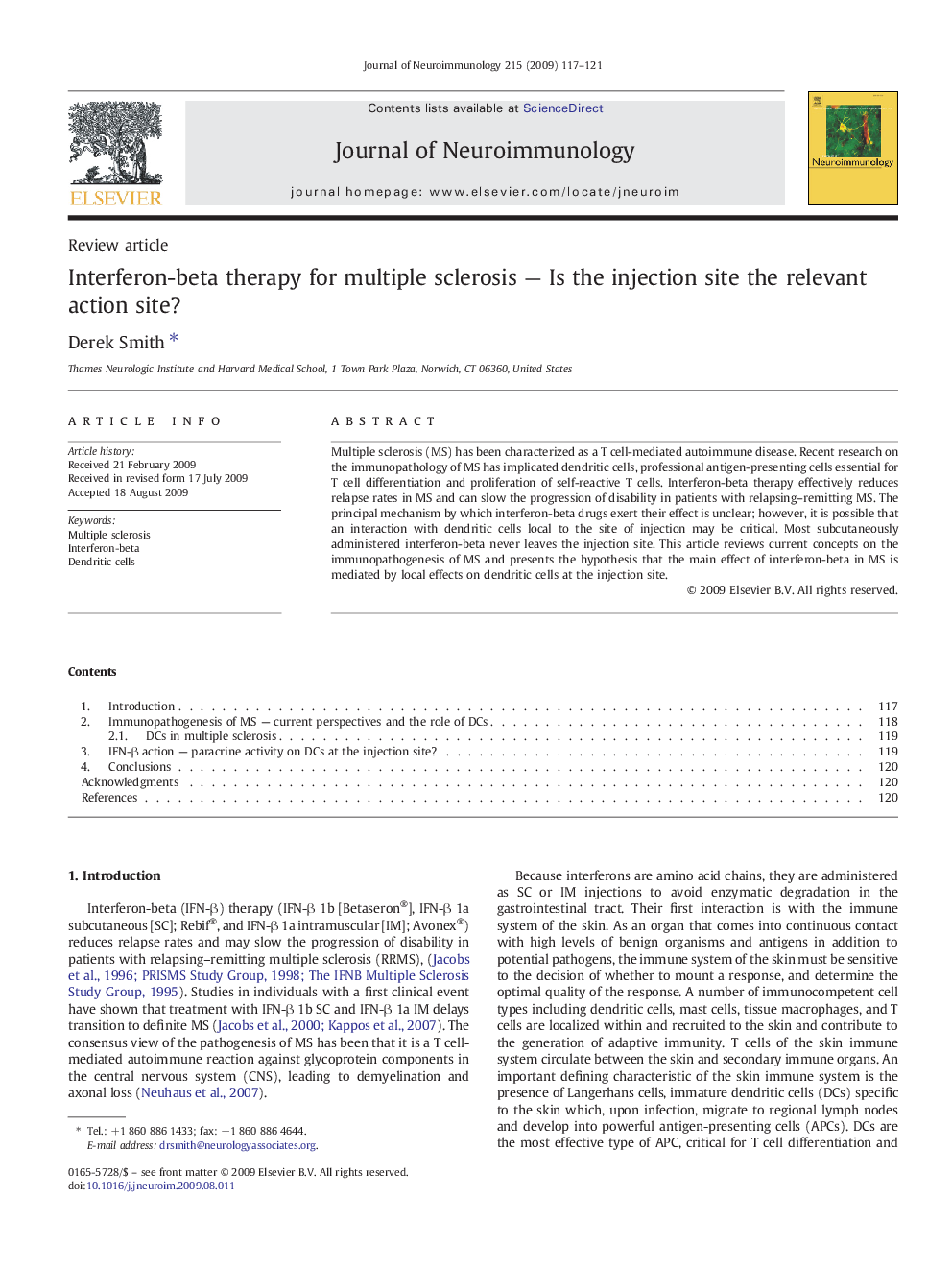| Article ID | Journal | Published Year | Pages | File Type |
|---|---|---|---|---|
| 3064861 | Journal of Neuroimmunology | 2009 | 5 Pages |
Abstract
Multiple sclerosis (MS) has been characterized as a T cell-mediated autoimmune disease. Recent research on the immunopathology of MS has implicated dendritic cells, professional antigen-presenting cells essential for T cell differentiation and proliferation of self-reactive T cells. Interferon-beta therapy effectively reduces relapse rates in MS and can slow the progression of disability in patients with relapsing-remitting MS. The principal mechanism by which interferon-beta drugs exert their effect is unclear; however, it is possible that an interaction with dendritic cells local to the site of injection may be critical. Most subcutaneously administered interferon-beta never leaves the injection site. This article reviews current concepts on the immunopathogenesis of MS and presents the hypothesis that the main effect of interferon-beta in MS is mediated by local effects on dendritic cells at the injection site.
Related Topics
Life Sciences
Immunology and Microbiology
Immunology
Authors
Derek Smith,
